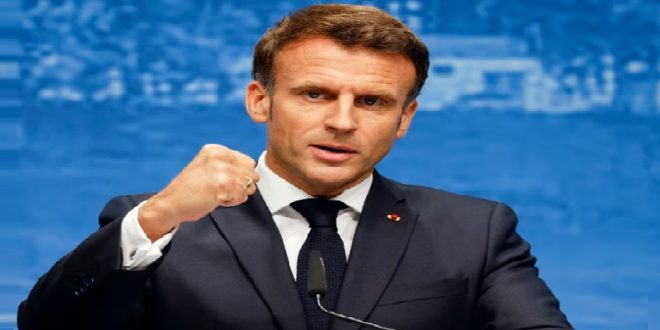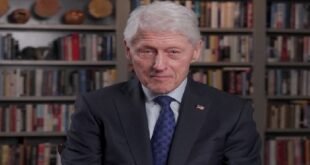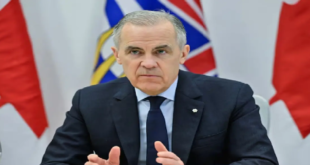13-06-2024
PARIS: French President Emmanuel Macron has defended his shock decision to dissolve parliament and call elections, urging French voters to come together and “say no to the extremes”.
Three days after his bombshell announcement in response to the far-right National Rally’s dramatic victory in European elections, Macron denied he wanted to hand them the keys to power.
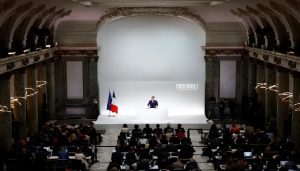 He said calling elections was the only republican option. He said that a broad range of political groups who “cannot identify with this extremist fever” should unite against it. His decision to call two rounds of elections on 30 June and 7 July has prompted four parties on the left to agree a pact to work together, but the conservative Republicans have been left deeply divided.
He said calling elections was the only republican option. He said that a broad range of political groups who “cannot identify with this extremist fever” should unite against it. His decision to call two rounds of elections on 30 June and 7 July has prompted four parties on the left to agree a pact to work together, but the conservative Republicans have been left deeply divided.
Hardline Republicans leader Eric Ciotti is facing calls to resign after he called for an alliance with the National Rally, led by Marine Le Pen and Jordan Bardella.
Although an estimated half of grassroots Republicans back such an alliance, the vast majority of party leaders have rejected it out of hand.
Ciotti said the party’s Paris HQ was being shut for security reasons, hours before an emergency meeting to decide whether to depose him was due to take place there. He denied any such meeting had been planned.
President Macron has been widely criticized for an apparently spontaneous decision to call elections, an hour after his party polled below 15% while National Rally scored almost 31.5% in the European vote.
Two years into his second term as president, his party is without a majority in the National Assembly, so every piece of legislation requires support from political allies. He said the system had become jammed, leaving the government unable to act.
Macron said that as president, he would not get involved in campaigning and would leave that to Prime Minister Gabriel Attal, although his speech on Wednesday sounded very much like the launch of his party’s campaign.
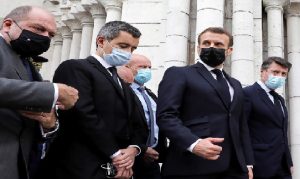 Asked by a reporter whether he had handed the keys of France to the far right, Macron said that doing nothing was not an option and asking the people to decide was a principle of democracy. Voters who had backed National Rally on Sunday had expressed their anger, he said: “Message received.”
Asked by a reporter whether he had handed the keys of France to the far right, Macron said that doing nothing was not an option and asking the people to decide was a principle of democracy. Voters who had backed National Rally on Sunday had expressed their anger, he said: “Message received.”
Macron turned his fire on both the left and right, arguing that the masks of both had slipped and the battle for values had burst into the daylight.
He accused Ciotti of turning his back on his party that owed its heritage to Presidents Charles de Gaulle, Jacques Chirac and Nicolas Sarkozy.
Then he said the centre-left had got into bed with a far left that had been guilty of antisemitism and anti-parliamentary attitudes.
Raphael Glucksmann led the centre-left to third place on Sunday with a campaign that attracted voters alienated by the more extreme France Unbowed of Jean-Luc Melenchon. Yet within 24 hours of the result, the centre-left had agreed a pact with France Unbowed.
Melenchon accused the president of diving into a strategy of chaos and of drowning in a flood of insults towards “those who don’t share his opinion”.
On the key issues for the election, Macron said he wanted to “launch a great debate on secularism in France”. He also said France needed “simple, everyday decisions such as enabling the state to regain control on the issue of unaccompanied minors, who are a security problem in so many towns; respond more firmly to the rise in juvenile violence … and respond to the existing feeling of impunity with a justice system whose resources have been increased but which must now also respond with faster, safer, clearer sentences.” (Int’l News Desk)
 Pressmediaofindia
Pressmediaofindia
